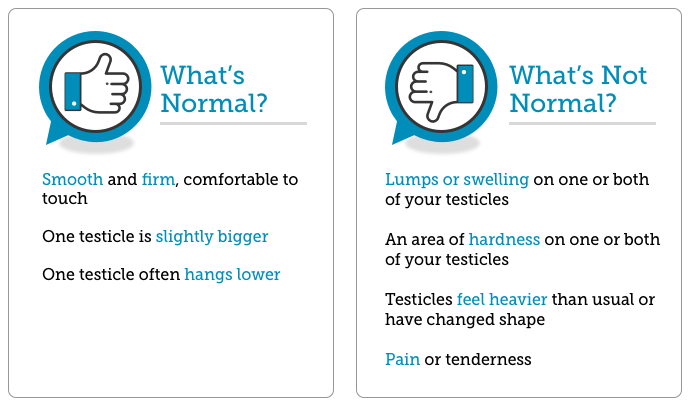
April is Testicular Cancer Awareness Month
Health & Safety Ireland Urges Men to Check Themselves
Testicular cancer is one of the less common cancers in men, with only 1 out of every 250 men getting diagnosed during their lifetime. While testicular cancer can affect a boy or man at any age, it’s most often found between the ages of 15 to 44 years old. It’s always a shock to learn cancer has grown in the testis, especially at a young age. The good news is that testicular cancer is highly curable, especially if caught early.
It’s really important to keep yourself informed about the symptoms and risk factors of testicular cancer and to perform monthly self-examinations. If you ever feel any new lumps or changes in your testicles, you should get a checkup with your doctor right away. The good news is that when testicular cancer is caught early, it can usually be treated with a simple procedure, so you can avoid the need for chemotherapy or other complex surgeries.
Know the Testicular Cancer Facts:
Symptoms: The most common symptom is a painless lump in the testicle. Other symptoms include swelling of the testicle, with or without pain; a feeling of weight in the testicles; a dull ache or pain in the testicle, scrotum, or groin; or tenderness/changes in the male breast tissue.
Risk Factors: The risk of getting testicular cancer rises for men with a family history, undescended testicles, or germ cell neoplasia in situ (GCNIS), which is typically found during an infertility test.
Testicular Self-Exam: The best time to do a monthly testicular self-exam is after a warm bath or shower while standing when the scrotum is relaxed. It only takes a few minutes.
- Check each testicle. Gently but firmly roll each testicle between the thumb and forefingers. Feel the whole surface. The testis should be firm all around. It’s normal for one testis to be slightly larger than the other.
- Find the epididymis and vas deferens. These are soft tube-like structures above and behind the testicle. These tubes collect and carry sperm. Just become familiar with how these cords feel.
- Look for lumps, swelling, or things that seem wrong. Lumps or bumps are not normal (even if they cause no pain). Pain is not normal.
- Check yourself at least once a month. Always look for changes in size, shape, or texture. If you notice a lump or any changes over time, you should seek medical help. It may be nothing, but if it is testicular cancer, it can spread very quickly.
Understandably, men can feel uncomfortable when it comes to getting help or admitting they have a reproductive health concern. Stuff like prostate examinations, scrotal examinations, penis stuff, all of it. Men usually avoid seeing a doctor unless they have a problem. It’s natural to feel embarrassed or scared of the unknown but remember that prioritising your health and wellbeing is crucial. Don’t let those feelings prevent you from getting a professional opinion. You Got This!
#healthandsafetyireland #menshealth #knowyourbody #testicularcancerprevention #checkyourself #beaware #stayhealthy #getmentalking
Irish Cancer Society Support Line
Whoever you are, wherever you come from, we are here for you. For confidential advice, information and support, contact our Support Line on Freephone 1800 200 700.
https://www.cancer.ie/cancer-information-and-support/cancer-types/testicular-cancer




